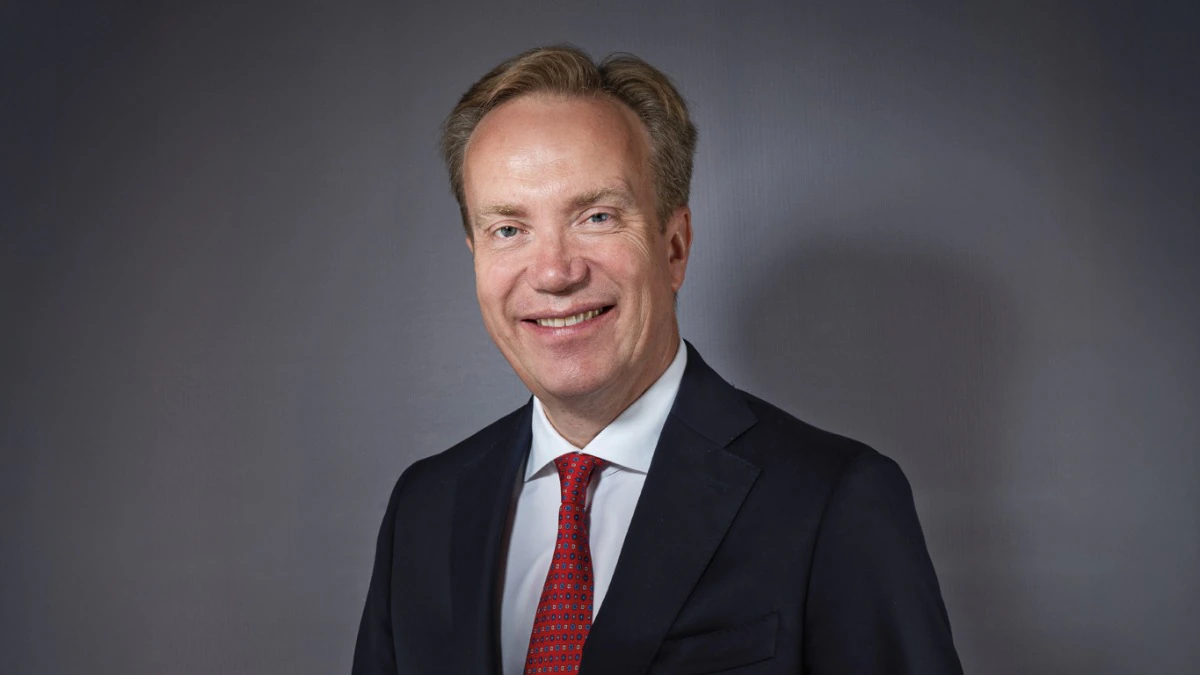Børge Brende, President and CEO of the World Economic Forum, on the global and Indian economy, and the future of trade.

Rajiv Memani addresses a press conference after taking over as the President of Confederation of Indian Industry (CII)
Rising trade barriers, slowing global growth and shifting economic dynamics, the World Economic Forum’s 2025 outlook is packed with several red flags. But amidst all that uncertainty, India stands out as a bright spot. Børge Brende, President and CEO of the World Economic Forum, talks to Siddharth Zarabi, Editor of Business Today, and Rajdeep Sardesai, Consulting Editor of India Today TV, about the current economic climate. Edited excerpts:
SZ: What is your reading of the world economy at this point?
Global growth is more sluggish than it was in the past few decades. But despite the current geopolitical backdrop, the global economy is more resilient than expected. There are some drivers of growth, and India is the bright spot among the largest economies. If it continues like this, India will be the third-largest economy in the world, with GDP of $5 trillion, may be already this year.
RS: What are the key uncertainties and challenges?
I would say the most challenging factor would be a full-fledged war in addition to the conflict in Ukraine. The second is the trade wars. So far, it has not been good news for global growth. We are far below trend growth of nearly 4% in the past decade. Now it is maybe even below 3%. The third is global debt, because we haven’t seen so much global debt since the Second World War.
SZ: What’s your reading of the trade reset that is underway?
I would say that there is a structural change in trade. Manufacturing was the driver of trade in the recent past, but where we see real growth now is in digital trade and services. These are growing three times faster than the trade in manufacturing. And I think this is one of the reasons why India is doing relatively well, because it is very strong in services and digital trade.
RS: Is the uncertainty over US President Donald Trump’s actions something that makes the world even more difficult to manage?
Like I said, it is surprising how resilient the global economy has been so far. It is growing around 3%. That’s not bad, though it’s not as good as in the past. Of course, the tariffs are creating uncertainty. But it’s not just tariffs, it is also policies related to trade licensing.
SZ: Does that mean that globalisation as we know it has been permanently redefined?
The geopolitical world order after the Cold War does not exist anymore, and we don’t know what the new order is going to be. Hopefully, it’s not the law of the jungle. There is now friend-shoring, home-shoring and near-shoring. Plus, many leaders want to bring down inflation, including Trump. So, there are many trade-offs here. There are many unknowns.
RS: Do you believe that India is now in a sweet spot as the world looks beyond China to find new global supply chains?
The short answer is yes. Just in the last decade, India doubled its GDP. And if it can keep growth up at 6-7% in the coming years, it’s going to be a $10 trillion economy very soon.
India has also benefited from friend-shoring. Besides, India also has a huge opportunity because of its demographic dividend. The median age in India is 28, the workforce is growing every year, and there are a lot of very tech savvy young people.
India needs to work more on deregulation, cutting red tape, improving infrastructure. If India does that, it will play a significant role also in the coming decades geopolitically and geoeconomically.
RS: In the age of AI, will we be able to create sufficient jobs?
Every paradigm shift in technology can reduce or kill some jobs, but it can also create jobs higher up the value chain. AI has a huge impact on productivity. Our economists say implementing AI proactively can increase productivity by 10%. That gain can be reinvested.
RS: What reforms or investments do you believe economies should prioritise in this multipolar world?
It’s tough to offer any advice at this moment, but I would say invest in education, research and development.
Make sure that you don’t get too indebted. Also, develop good trade agreements with other countries, because the multilateral system is incredibly important. I would also avoid unnecessary red tape. Invest in infrastructure. I would also invest in good governance, excellent courts.
SZ: What’s the Davos agenda going to be next year?
It is a very challenging geopolitical and geoeconomic landscape. But even if countries are competing, there are areas where they can find common interest in future pandemics, climate change, and cybercrime. Davos is a place to get together and try to find solutions even under very difficult circumstances. And we do already expect the key global leaders there in Davos. And of course, we hope we will see Prime Minister Modi back in Davos in January too.
Published – July 20, 2025
Source : https://www.businesstoday.in/
Disclaimer: This information has been collected through secondary research and ceruleconsulting.com is not responsible for any errors in the same
